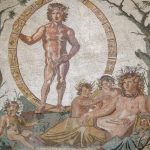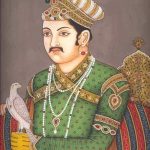A study of Roman history shows that the ancient Romans had a very complicated relationship with astrology. While on one hand, the Roman emperors discouraged astrology, on the other hand they shrewdly used it as a political tool. In a political climate with ruthless leaders, even astrology was an excellent weapon. In fact, one cannot separate Roman history from astrological allegories and backstories.
History Of Astrology In Rome
Criticism And Policies Against Astrology
As with most big empires, Rome absorbed the intellectual findings and philosophies of the territories that it conquered. When Rome annexed Greece the Romans were influenced by the philosophies, myths and practices of the Greeks. The Romand greatly encouraged and appreciated Greek philosophy. They viewed Greek astrological practices with hostility and disdain. Greek astrology at first did not flourish in Rome. In addition to this hostility, the Romans were also followers of the philosophies of Plato. Cicero had also critically exposed the inaccuracies in the predictions of the Chaldeans. He quoted an earlier work by Ennius that was written in 200 BCE that was highly critical of astrology. These arguments against the practice of astrology continue even till date.
Believing in Greek astrology did not make tactical sense for the rulers of Rome. Greek astrology was something that was out of their control and they were loath to allow the spread of something potentially popular that they could not manipulate or control. They discouraged any ‘alien’ belief or practice and banished its practitioners from the Roman empire.
This policy continued over a period of time. The emperors issued thirteen decrees between 44 BCE and 180 CE to banish astrologers. This shows that the practice of astrology persisted in the Roman empire despite the lack of encouragement. The rulers and the higher levels of military leaders and government followed Plato’s philosophies. Astrology still held its own with the ordinary citizens and the lower-ranked members of the military.
Astrology As A Political Tool
The Roman Emperors curbed the popularity of astrology not because they disbelieved it, but because it was a powerful tool. They wanted to keep it out of the hands of the common citizens. There are records of the emperors of Rome having had experiences in their lives that convinced them of the power of astrology. An astrologer recognised Augustus as the future emperor before he came to power. He published his horoscope after coming to power and minted coins that bore the representation of his sign Capricorn.
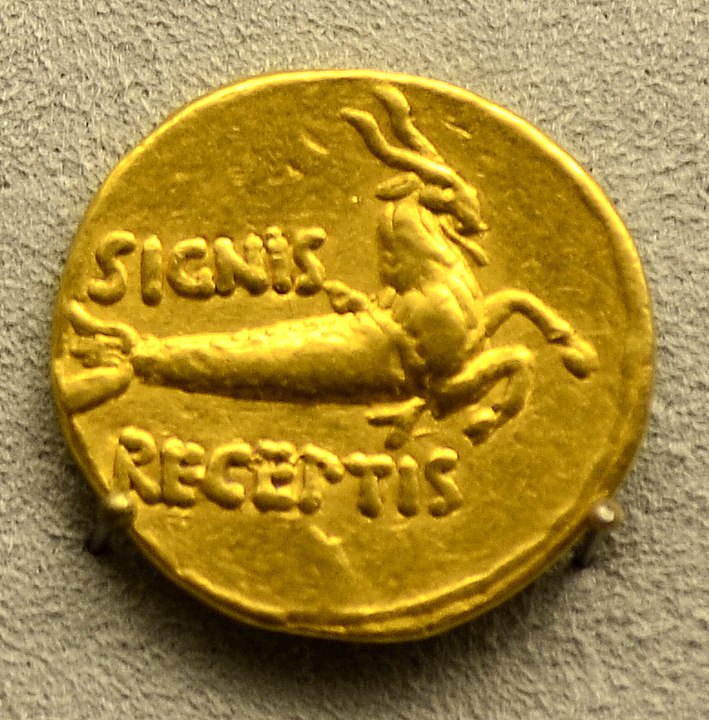
Tiberius who succeeded Augustus was an astrologer himself. He learned astrology when he was in exile. He was extremely harsh with astrologers. When an astrologer could not predict that his own life was in danger, Tiberius had him thrown into the sea. However, he trusted Thrasyllus’ competence and gave him the position of court astrologer. Thrasyllus was a master at astrology and the author of an astrological textbook, Pinax. So, we see that the Romans had respect for astrology but little patience with inefficient astrologers and charlatans. Thrysallus’ son Tiberius Claudius Balbillus succeeded his father after his death in 36 CE. He was the astrologer to Claudius, Nero and Vespasian. He also authored the work Astrologumena, on the length of life.
Romans believed at that time that the astrologers talked to God. The Roman rulers were intent on limiting this tool to their own use. However, Romans did not accord astrology the absolute power, unlike the Babylonian rulers. Romans also used other forms of divination for decision making.
Astrology As A Weapon
There are further records of the use of astrology by the Roman emperors. Domitian was a ruler who studied the horoscope of others to see if they were any challenge to him. He had them murdered if they were. On the contrary, the emperor Hadrian used astrology to identify a good successor. Septimius Severus painted his birth chart on the palace ceiling but without the vital information as to his ascendant. This was to ensure that no one would use the birth chart against him.
Equating The Roman Emperor With The Sun
When Rome was a republic, Romans worshipped the Sun. When it became an empire, the rulers associated the sun with the emperor. The rulers exploited this to the fullest. They attempted to make the sun the ruler and centre of the government. Records show that Augustus gave credit to Apollo for his victory. Nero compared himself to the sun and even used the name Helios Basileus. He compared his authority to the brilliance of the sun and minted coins that featured him wearing a crown that emitted sunbeams. The emperors Caligula and Commodus also compared themselves to the Sun. The emperor Hadrian ordered the building of the Pantheon, a temple dedicated to the planetary deities. Emperor Antoninus Pius in 158 CE conducted an event called the Sol Invictus to celebrate the winter solstice as the victory of the unconquered sun.

The Emperor Septimus Severus constructed a shrine to the seven planets and placed himself in the centre as the sun. Emperor Elagabalus changed his name to allude to the sun; Heliogabalus.
The rulers of the Roman empire fully exploited the history of sun worship by the people. The emperors alluded that they were the embodiments of the sun. They encouraged public worship and ceremonies to glorify the sun. This was more than an ego-building exercise. It was a way of assuring the extreme respect and religious devotion of their subjects.
Julius Ceasar As A Comet
Julius Caesar’s adopted son Octavian used astrology and iconography very cleverly throughout his reign. He was later called Augustus. There was a comet seen in the sky during the time of mourning for Julius Caesar. Though comets were generally seen as ill omes, a contrary story was promoted. It was thought that the comet was the soul of the late Julius Caesar ascending to become a god. In one sweep Julius was deified.
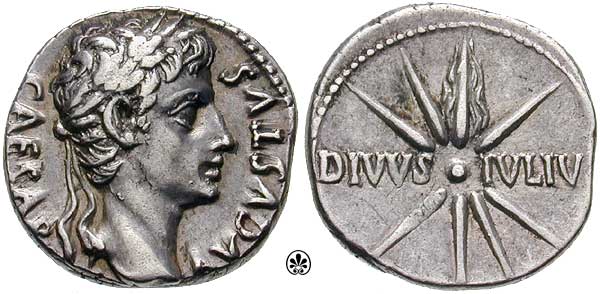
Octavian then declared war on the assassins of Julius Ceasar and won. He commemorated the win by dedicating a Roman temple to Mars. He promoted the idea that his father was a god and closely associated himself with it. Octavian minted coins featuring the sacred comet as well as the profiles of Octavius and his father. Octavian referred to himself as the son of the deified one. He used a mixture of astronomy, astrology and iconography to strengthen his power.
Astronomica
Manilius’ poem Astronomica is a work on astrology. In his dedication, he portrays the rule of Octavian (known then as Caesar Augustus) as celestially ordained. He goes further to enhance and support Octavian’s iconography and the deification of Julius Caesar.
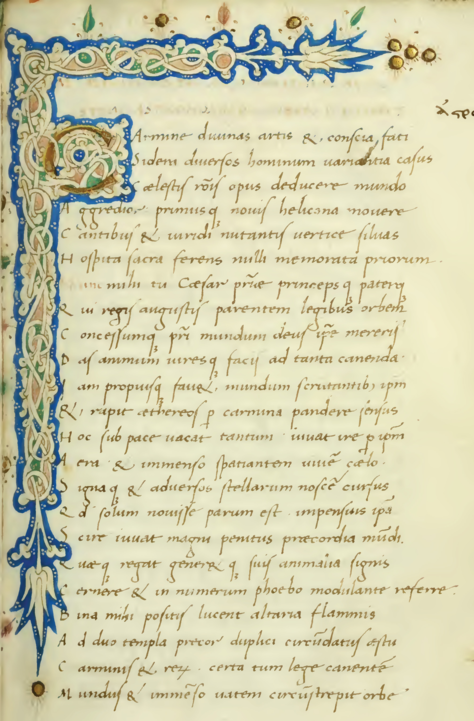
The First Page Of Astronomica
Octavian then proceeded to enter into a bitter rivalry with Mark Antony (supported by Cleopatra) for a decade. They fought along ideological and cultural lines with many references to the gods. Manilius wrote the first book of the Astronomica in 9 CE. Two years later Octavian (Augustus) banned individual consultation with an astrologer. This was also a strategical move on his part. He was in his seventies and did not want to fuel any speculation about his death. Tiberius succeeded him and ushered in a good period for astrology. Manilius finished the poem Astronomica during Tiberius’ reign. The chapters of the poem written at this time praise the sign of Octavian; Libra. This is a shift from all the praise and iconography of Capricorn encouraged by Octavian.
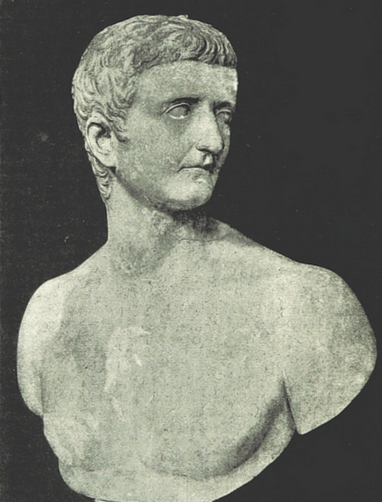
Bust Of Emperor Tiberius
Conclusion
We see through the history of the ancient Roman empire that the emperors either had great faith in astrology or at the least realised just how much power it had to sway public opinion. Roman emperors did not discourage the practice of sun worship but instead also manipulated it to make the emperor equal to the sun. It was a very clever use of astrology to further political gain and ambition. They used their signs and birth charts along with myths about their being destined for greatness as tools.
Roman emperors used astrology to justify their rule. The fact that the emperors used astrology to identify and eliminate their competitors shows the power that astrology had in general public opinion. The Roman emperors were also aware of the dangers of astrology being used as a tool against them which is why they ensured that it was by law kept out of the reach of its citizens and was only the privilege of the rulers. We have the valuable works of Astronomica by Marcus Manilius and the Tetrabiblos by Ptolemy Claudius from the Roman Empire.





